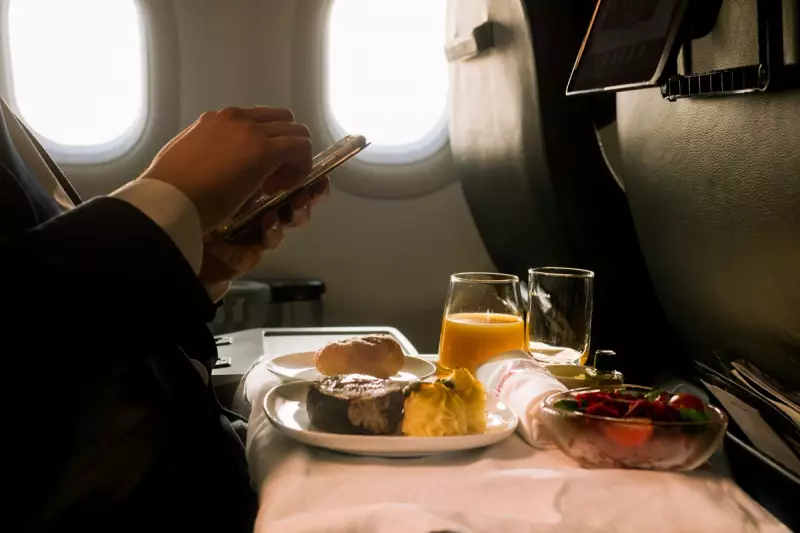
Think twice before tucking into that aeroplane meal on your next holiday flight. Health experts are issuing a stark warning about the hidden dangers lurking in your in-flight dining experience that could turn your dream getaway into a health nightmare.
The Hidden Dangers at 30,000 Feet
Nutritionists and aviation health specialists have revealed that several common aeroplane foods and drinks pose significant risks to travellers' wellbeing. The combination of high altitude, low humidity, and confined spaces creates the perfect storm for digestive issues and foodborne illnesses.
"The aircraft environment affects your body in ways that make certain foods particularly problematic," explains Dr Sarah Jenkins, a leading travel health specialist. "Reduced cabin pressure and dry air can intensify digestive discomfort and dehydration."
The Worst Offenders: What to Avoid
Coffee and Tea: Surprisingly, hot beverages top the danger list. The water used for brewing often comes from aeroplane tanks that may not be properly cleaned, potentially containing harmful bacteria.
Raw Foods: Salads, fresh fruits, and uncooked vegetables may have been washed with contaminated water at the departure location, putting travellers at risk of food poisoning.
High-Sodium Meals: Many aeroplane meals are loaded with salt to enhance flavour at altitude, but this can lead to severe bloating, swelling, and dehydration during your flight.
Essential Tips for Healthy Flying
- Bring your own sealed snacks and bottled water
- Choose cooked meals over raw options
- Avoid excessive alcohol and caffeine
- Stay hydrated with bottled beverages
- Pack hand sanitiser for before-meal cleaning
"Travellers should be particularly cautious on long-haul flights where the risks are amplified," warns nutritionist Emma Richardson. "Your holiday health starts the moment you board the aircraft."
Protecting Your Wellbeing Abroad
Food safety concerns extend beyond the aeroplane cabin. Many popular holiday destinations have different food hygiene standards, and travellers' immune systems are often compromised by fatigue and climate changes.
Experts recommend researching destination-specific health advice and considering probiotic supplements before travel to strengthen your digestive system against unfamiliar foods and bacteria.
Remember: a few simple precautions can make the difference between a holiday to remember and one you'd rather forget. Your in-flight choices could determine whether you spend your first days abroad exploring or recovering.





